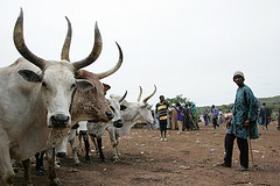
Synthesis report
An assessment of the critical human, financial, and institutional capacity issues affecting West African agricultural R&D
English | French
Country outputs
During 2013–2014, ASTI, CORAF/WECARD, and national focal points carried out an in-depth assessment of critical human, financial, and institutional capacity issues that national agricultural research institutes in Benin, Burkina Faso, Ghana, Senegal, Sierra Leone, and Togo are facing. The assessment included a quantitative survey collecting information on human and financial resources, R&D infrastructure, and R&D outputs; a series of face-to-face interviews with selected research and managerial staff; and a staff motivation survey distributed to a selected group of researchers and managerial staff. The outcomes of this in-depth assessment have been summarized in a series of country publications, as well as a synthesis report, highlighting the cross-cutting trends and challenges that emerged from the country-level data, structuring it within five broad areas: funding capacity, human resource capacity, research outputs, research-related infrastructure, and institutional conditions.
Compared with other African regions, West Africa invests a substantially smaller share of its AgGDP in agricultural research, is more dependent on volatile donor funding, and employs both a much older pool of scientists (many of whom are approaching retirement age) and a much smaller share of female agricultural scientists. Moreover, West Africa is severely challenged in terms of R&D infrastructure. Outdated research equipment and facilities are impeding the conduct of productive research, which compromises the number and quality of research outputs and ultimately translates into reduced impact.
The key policy implications emerging from the assessment include:
- Governments must address underinvestment in agricultural R&D and take the necessary policy steps to diversify funding sources
- Governments must invest in training and capacity building and remove status and salary discrepancies between NARI researchers and university-based researchers.
- Governments must develop long-term national agricultural research policy agendas and provide stronger institutional, financial, and infrastructural support to NARIs
